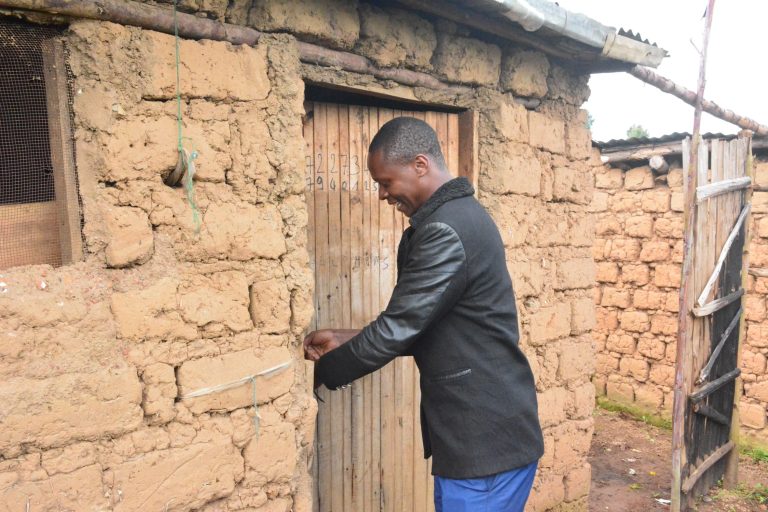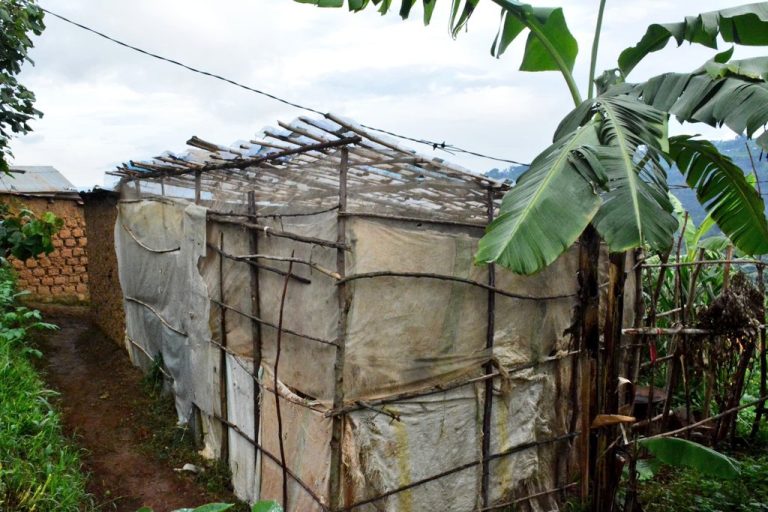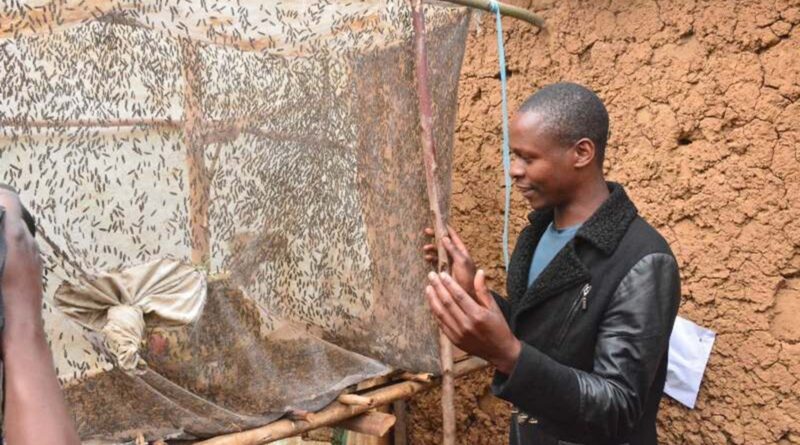How maggot farming changed the life of a young man in Gicumbi
Alphonse Uzabakiriho, a resident of Nyarutarama Cell in Byumba Sector, Gicumbi District, says he used to live in extreme poverty but turned his life around through maggot farming, which he discovered as a sustainable solution to the high cost of pig feed.
The 31-year-old explains that after receiving two pigs from the PRISM project, he was struggling to feed them due to the high cost of commercial feed. He decided to think outside the box and began farming maggots to produce his own livestock feed an initiative that not only helped him but also benefited other poultry farmers in the area.
PRISM is a five-year project launched in 2021 by the Government of Rwanda in partnership with the Belgian development agency Enabel. It aims to improve small-scale livestock farming, especially among rural youth and women, and is funded with €15.5 million. The project is set to conclude in 2026.
Uzabakiriho says: “They gave me two pigs and some starter feed, but it ran out quickly. I had to find a sustainable way to continue feeding them, so I started producing my own feed from maggots. This helped me a lot for every 10 kg of maize bran, I mix in 1 kg of maggot-based feed.”
He explains that maggots are highly nutritious and have improved the health and productivity of his animals. One gram of fly eggs can produce about 9 kilograms of maggots, which he roasts and mixes with other feed. As a result, his pigs grow well, and even his chickens are now thriving.
He adds that he now saves a lot of money that would have gone into buying commercial feed, and he sells the maggot-based feed at Rwf 450 per kilogram, which has become an additional source of income.
Emmanuel Nkezabandi, a poultry farmer who uses Uzabakiriho’s maggot-based feed, admits he was initially skeptical:
“When he started maggot farming, we thought he was crazy. But now I admire him because his initiative has significantly lowered the cost of chicken feed. I now mix half the usual amount of maize bran with his feed and still get a good egg yield.”
Gicumbi District Mayor Emmanuel Nzabonimpa says they plan to visit such innovative farmers to assess how the local government can support them further. He stated:
“We are impressed by how PRISM is transforming lives. Uzabakiriho’s choice to farm maggots as a way of feeding his pigs is remarkable, and we’ll consider supporting him with land so he can scale up his project.”
Joseph Nshokeyinka, the PRISM project coordinator, said that the project aims to lift people out of poverty through livestock farming, with a focus on rural youth and women. PRISM is active in 15 districts and has so far disbursed Rwf 18 million in loans to over 2,680 beneficiaries.
In addition to Enabel, PRISM is also supported by the International Fund for Agricultural Development (IFAD), implemented through Rwanda’s Ministry of Agriculture and Animal Resources (MINAGRI) and the Rwanda Agriculture and Animal Resources Development Board (RAB).
Maggot farming may seem unusual at first, but it’s proving to be a game-changing innovation especially for determined individuals like Uzabakiriho who are willing to try unconventional solutions to beat poverty.


Would you like to partner with us to promote your initiatives?
Call us at: +250784581663
Email: Greenafrica393@gmail.com and juvekwizera@gmail.com

